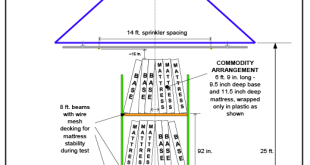
Five Ways to Boost Your Emergency Preparedness Today
Understanding how to stay safe in an emergency
September is emergency preparedness month. It serves as a great reminder that being prepared for an emergency is a vital for quick response times that help ensure safety of you and your loved ones. Each of these tasks can be easily accomplished today, and they have a lasting impact on your safety preparedness in an emergency.
- Make a Plan
Making a plan entailing what you will do in an emergency is important, and making sure your family is aware of that plan is even more important. Think ahead about the emergencies that are mostly likely to occur where you live. Identify tasks each family member will have in case of these various emergencies. Then practice any elements of your plan you feasibly can in a non-emergency situation. Finally, when making your emergency preparedness plan, don’t forget the pets! Knowing where they will go during an emergency is crucial. Make sure you have a plan for your pets in case of emergency!
- Familiarize Yourself with Exits
This might sound silly, especially in your own home, but make sure everyone living in your home knows about all. Exits don’t just include doors, so make sure the family is aware of any alternate escape routes.
- Make an Emergency Kit
Making an emergency kit is an easy and relatively inexpensive step. It’s best to have multiple emergency kits in different locations including: home, work, and the car. It’s hard to know what you might need in an emergency, but here are a few basics that should be in every kit:
- Water – a gallon per person, per day for at least 3 days is recommended
- Non-perishable food – canned, boxed, or freeze dried
- A battery or crank operated radio
- First Aid Kit
- Flash light and extra Batteries
- Manual Can Opener
- Moist Towelettes.
Find out more on what to include for your family’s unique needs here.
- Stock Up
Even before an emergency situation arises, be sure to stock up on supplies. Clean, bottled water, non-perishable foods, batteries, first aid, phone chargers, and personal sanitation items are a must! To keep food fresh, store food in a cool dry place and seal boxed/bagged food items in an airtight container to avoid contamination. Don’t forget to periodically check expiration dates and replace any expired items in your kit.
- Stay Informed
If there is a potential emergency in your area that you are notified about the most important step is to stay informed. Monitor the situation to understand if/when enacting your plan, or even evacuating, may be necessary. Keeping up-to-date with the latest news on a potential emergency near you can be a lifesaver.
Creating an emergency preparedness plan, and stocking up for it today can potentially save your life and the lives of your loved ones in the future. It’s never too early to plan ahead because you never know when you’ll need it!

 Sprinkler Age A Publication of the American Fire Sprinkler Association
Sprinkler Age A Publication of the American Fire Sprinkler Association



